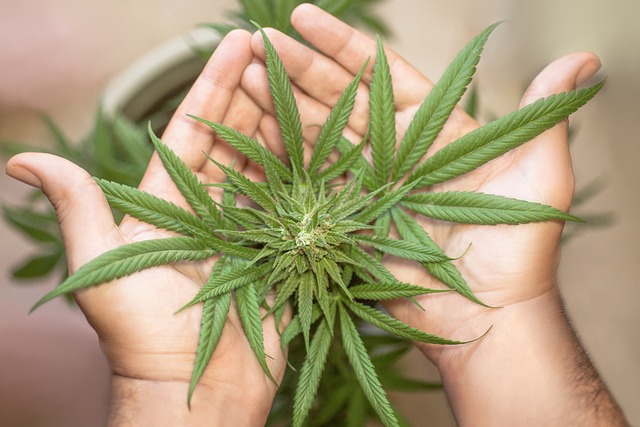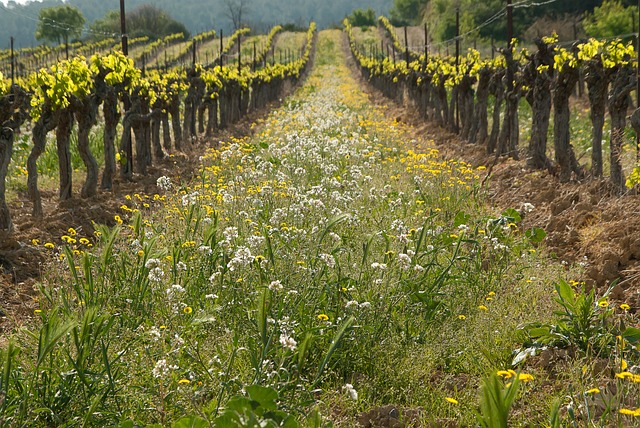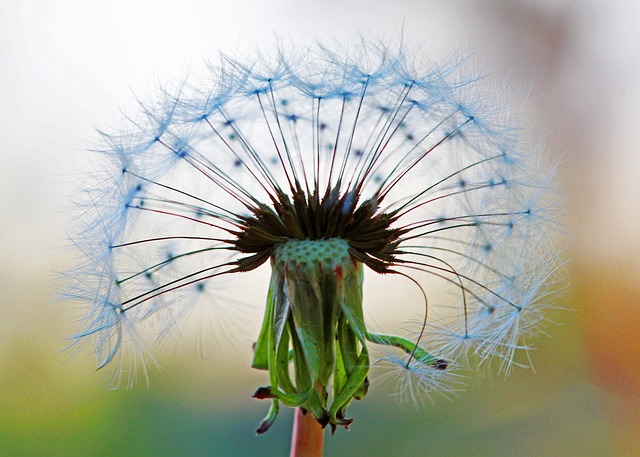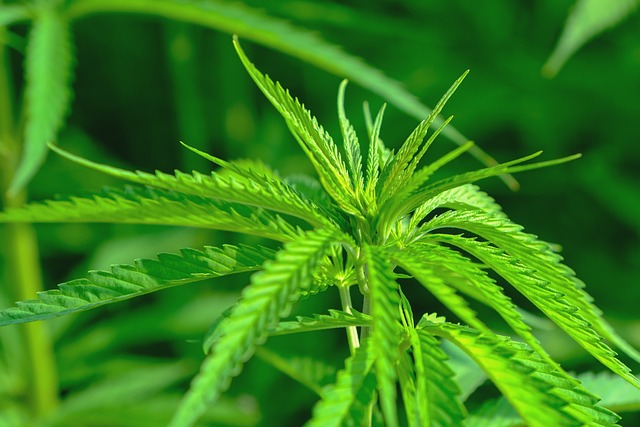Following legislative updates in Michigan, THCA (Tetrahydrocannabinolic Acid), a non-psychoactive cannabinoid found in cannabis plants, has been legally recognized for adults aged 21 and over. Michigan residents can now access THCA-rich flowers as an alternative to traditional THC products, with the option to convert them into THC through decarboxylation for psychoactive effects or consume them in their raw state for a less intense experience. The state's progressive cannabis laws allow for the use of THCA flowers for wellness, highlighting their potential therapeutic benefits and clear-headed high. It's crucial for users to be aware of the legal framework governing THCA products, including stringent regulations on cultivation and sale that ensure safety and potency. The Michigan Department of Licensing and Regulatory Affairs oversees these regulations, and consumers must stay informed as cannabis policy continues to evolve within the state. THCA's emergence in Michigan's legal market offers a safe, therapeutic alternative to psychoactive cannabis, with cultivators adhering to strict guidelines to produce high-quality THCA flower, focusing on optimizing growing conditions, soil health, and compliance with state laws.
Explore the multifaceted world of THCA (Tetrahydrocannabinolic Acid) flower, a non-psychoactive cannabinoid that’s gaining attention among Michigan residents. This article sheds light on the burgeoning legal landscape of THCA flower in the state, detailing its cultivation, benefits, and optimal consumption practices. From understanding THCA’s therapeutic properties to navigating dispensary offerings, we delve into how this compound can be a valuable addition to your wellness routine. Discover the intricacies of preserving THCA’s integrity through processing techniques, and learn about the entourage effect when combined with other cannabinoids. Michigan’s role in the evolving legal cannabis market is highlighted, alongside practical advice on home cultivation and safe consumption. Join us as we explore the promising future of THCA flower within the state’s cannabis industry.
- Unlocking THCA Flower's Potential: A Guide for Michigan Residents
- The Legal Landscape of THCA Flower in Michigan
- Understanding THCA: A Non-Psychoactive Cannabinoid's Benefits
- Cultivation Practices for Optimal THCA Flower Yield in Michigan
Unlocking THCA Flower's Potential: A Guide for Michigan Residents

As of the latest legislative updates, THCA or Tetrahydrocannabinolic Acid, the precursor to THC found in cannabis flowers, has garnered significant attention among Michigan residents. The legal landscape in Michigan has paved the way for adults aged 21 and over to engage with cannabis products that contain THCA legally. This has opened up a world of possibilities for those interested in exploring the potential benefits and effects of THCA, which some users report can offer a clear-headed high compared to its psychoactive counterpart, THC. For residents of the Great Lakes State, understanding how to properly utilize THCA-rich flowers is crucial. These flowers, when properly decarboxylated, convert THCA into THC, unlocking the familiar cannabinoid’s effects. However, when consumed in their raw form, THCA flowers offer a distinct experience that is less intense and more focused on the body’s endocannabinoid system. Michigan’s residents can take advantage of this by incorporating THCA flower into their wellness routines, whether for its potential therapeutic properties or simply to enjoy the unique effects it provides. It’s important to note the specific legalities regarding possession and consumption, ensuring compliance with local and state laws when handling THCA-rich products. As such, residents are encouraged to stay informed on the evolving regulations surrounding cannabis in Michigan to make responsible choices in their wellness journeys. Whether choosing to consume THCA flowers raw for a subtle effect or decarboxylating them for a more traditional high, Michigan’s cannabis community can now explore this versatile compound with confidence and clarity.
The Legal Landscape of THCA Flower in Michigan

In recent years, the legal status of THCA flower, a cannabinoid found in the Cannabis sativa plant that exists in its raw form before heat activation converts it to delta-9 tetrahydrocannabinol (THC), has garnered attention within the state of Michigan. As of the knowledge cutoff date in early 2023, THCA flower is legal for medical and adult recreational use under specific conditions. The Michigan Regulation and Taxation of Marihuana Act, enacted in 2018, allows adults aged 21 and over to possess, consume, and cultivate limited amounts of cannabis, which includes THCA flower. However, the sale of THCA flower is more restricted, as it falls under a category that requires a testing and licensing process before it can be sold as a consumer product. Medical marijuana patients in Michigan, who have a card issued by the state, also have legal access to THCA flower through licensed dispensaries, provided that the product has been tested for safety and potency. It’s crucial for consumers to stay updated with the latest regulations, as the legal landscape of cannabis is subject to change, reflecting an evolving approach to cannabis policy within the state. The Michigan Department of Licensing and Regulatory Affairs (LARA) oversees the regulation of adult-use marijuana establishments, ensuring compliance with state laws and providing guidance for the sale and distribution of THCA flower and other cannabis products. Understanding the legal nuances surrounding THCA flower in Michigan is essential for both consumers and businesses involved in the cannabis industry to operate within the confines of the law.
Understanding THCA: A Non-Psychoactive Cannabinoid's Benefits

THCA, or tetrahydrocannabinolic acid, is a naturally occurring cannabinoid found in the cannabis plant, which has garnered attention for its potential therapeutic benefits. Unlike its well-known counterpart THC, THCA is non-psychoactive, meaning it doesn’t induce the high commonly associated with cannabis consumption. This characteristic makes THCA an attractive option for those seeking the health advantages of cannabinoids without the psychoactive effects. In Michigan, where legislation has evolved to legalize certain forms of cannabis use, THCA is being recognized for its wide range of potential wellness applications. Research suggests that THCA may offer anti-inflammatory, anti-nausea, anti-anxiety, and neuroprotective properties. These benefits have led to its inclusion in various health and wellness products, from tinctures to topicals, across the state’s legal market. As interest in the therapeutic potential of cannabinoids continues to grow, THCA is positioned as a key player, offering a safe and effective alternative for those looking to harness the benefits of cannabis without psychoactive effects, particularly in Michigan where its legal status allows for such exploration.
Cultivation Practices for Optimal THCA Flower Yield in Michigan

In Michigan, where THCA flower has been legalized for medical use and adult-use cultivation under certain regulations, cultivators are keen to optimize their yields while adhering to state laws. Successful cultivation of high-quality THCA flower in Michigan hinges on a combination of environmental control, soil management, and precise timing. Environmental conditions, such as temperature and humidity, must be carefully monitored to mimic the optimal growing environment for cannabis plants. Light deprivation or greenhouse setups can extend the grow cycle, allowing for greater biomass production. Additionally, selecting the right strain that thrives in Michigan’s climate is crucial. Soil health should not be overlooked; it must be enriched with organic matter to support plant growth and nutrient uptake. Implementing a well-structured irrigation system ensures consistent hydration and prevents over or underwatering, which can stunt growth or damage the plants. Furthermore, adherence to Michigan’s cultivation laws, including licensing requirements and plant count restrictions, is imperative for legal compliance and sustainable practice. Cultivators must stay informed on the evolving regulations to navigate the legal landscape effectively and maintain high standards of production to meet the demands of the market.
Residents of Michigan now have a clear understanding of how to harness the therapeutic and potential wellness benefits of THCA flower, a non-psychoactive cannabinoid found in hemp and marijuana. The legal status of THCA flower within the state has been thoroughly examined, ensuring readers are informed on its compliance with local laws. Cultivation strategies for growing this unique compound have been detailed, providing insight into optimizing yields. As the knowledge around THCA continues to evolve, Michigan’s residents can stay ahead by utilizing the information provided in this comprehensive guide on the potential of THCA flower and its legal standing in Michigan.
